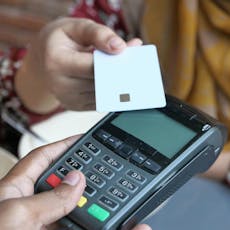Cashback credit cards are a type of reward card that let you earn a set percentage back on your everyday purchases.
See which credit cards you're eligible for
Comparing won’t affect your credit score



By Matt Fernell, Editor-in-Chief at Finance.co.uk.

Cashback credit cards can be a great way to get the most out of your credit card purchases. Find out how to find a cashback card that works for you.
We compare deals from top UK providers to find cashback credit cards that are right for you.
Get a decision and see deals in minutes
Compare reward credit cards from a range of top providers
Only see credit cards you’re eligible for
Check eligibility with no impact on your credit score
We’ll show you the cards you’re eligible for side-by-side so you can compare and choose the one that best suits your needs.
So we can find the cards you’re eligible for, we need to understand a bit about:
Your income: including your employment status, start date and annual income
Your household details: including your address, homeowner status and what you pay towards rent or mortgage payments
Your personal information: including your name, date of birth, contact details, and number of dependents
We will use this information to conduct a ‘soft check’ on your credit record to assess your eligibility. This means we can show you cashback cards you have a good chance of getting, with no impact on your credit score.
Here are some things to think about when comparing cards to help you choose the right option:
Most cashback credit cards are widely accepted by UK retailers, restaurants, and online stores. However, not everyone will accept payment from all cashback credit card providers.
Before getting a cashback credit card, make sure it can be used where you regularly shop. For example, American Express (Amex) is a popular rewards credit card provider; however, not all shops and restaurants will accept them for payment.
Many cashback cards will have terms that could affect how suitable the card is for you. Things to look out for include:
Higher introductory cashback rate, e.g. 5% for the first three months and then 1% after
Spending thresholds to achieve higher rates, e.g. 5% cashback if you spend more than £1,000 in the first month
Does the card offer other benefits that you would find useful, like 0% interest on purchases or balance transfers?
Check the APR as this will tell you how much interest you’ll be charged if you don’t clear the balance each month
Is there an annual fee, and will the cashback you could earn cover the cost?
Think about how much you’ll use the card to determine what terms could work for you. A card that only earns cashback if you spend over £1,000 a month isn’t worth getting if you don’t think you’ll spend more than £500 a month.
Cashback cards work best when you pay off the balance each month. However, if you’re not confident you’ll be able to do this, pay careful attention to the APR the card charges.
This is an important question to ask yourself before you start an application. Cashback credit cards are most useful when you're going through a period of increased spending, for example, if you’ve just moved house or going on holiday.
If you don't think you'll be using your card often, cashback cards may not be right for you because the fees cost you more than the cashback you get.
It may also be worth thinking about how you typically manage your credit cards. If you're regularly paying off your balance in full every month and not paying interest, then a cashback card can be a beneficial way of making your money go further.
If you regularly have unpaid balances building interest, other cards, such as a 0% purchase card, may be better.
Get rewarded for your everyday spending
Cashback can be used to reduce the balance owed on your credit card
Some cashback can be redeemed into vouchers to be used at retailers
You get section 75 protection, which makes it easier to get refunds on faulty goods between the value of £100 to £30,000
You need to have a good credit rating to be eligible
Not all purchases qualify for cashback
You may need to use the card a lot to benefit if it has an annual fee
You may be tempted to spend more than you can afford to get more cashback
You may only be able to access cashback after using the card for a minimum period of time
Here are some other options that could help your money go further.
Instead of getting cashback that can be used to reduce your balance, rewards cards will usually give you points that can be redeemed for air miles or vouchers to spend in your favourite stores.
Some rewards cards are tied to a specific retailer or brand. Although you'll be able to earn points no matter where you spend, the vouchers you get in exchange may only be used at specific stores.
To get the best out of rewards credit cards, make sure the points can be redeemed at stores and brands you shop at; otherwise, they may be less beneficial to you.
When you open a savings account, the money you deposit will start to earn interest. If you can put in a large amount of money and leave it in a savings account over many years, it's possible to generate extra money.
The amount you can earn from a savings account will depend on the account's AER (annual equivalent rate) and how much you put into it.
To get the most out of a savings account, you'll likely need to put a lot of money into it and leave it there untouched so it can earn interest. If you don't have much money to save, it may not be the most efficient way of earning additional money.
The information provided does not constitute financial advice, it’s always important to do your own research to ensure a financial product is right for your circumstances. If you’re unsure you should contact an independent financial advisor.
We're on a mission to improve the finances of the nation by helping you to spend wisely and save money



We're on a mission to improve the finances of the nation by helping you to spend wisely and save money



A cashback card gives you a percentage of cash back per transaction. With a rewards card, you build up points which can be used and redeemed for money off items or air miles.
Many reward cards give you bonus points when used with specific retailers, whereas a cashback card will give you the same cashback rate no matter where you use the card.
You can get cashback on most purchases you make with the card. These may be items you buy in stores or online, household bills you pay for on your card, and meals out.
Some things are excluded from cashback. Transactions you won't earn cashback on include, but are not limited to:
Vehicle dealers
Car servicing
Gambling
Tax payments
There may be other exclusions depending on your card provider.
You can have as many cashback credit cards as you're approved for - there is no limit.
However, every card application you make impacts your credit report. When you apply for a card, the provider will perform a hard search of your credit history.
Every time this happens, a 'mark' is left on your credit report that future lenders can see. Having many 'marks' on your credit report within a short time may put lenders and card providers off because it indicates you may be desperate for money.
The more cards you apply for in a short time, the worse it will impact your credit score. It’s best to limit your application for new credit products to one or two within six months.
This is because too many obligations increase your commitments, and applying for several in a short time concerns providers that you won’t be able to afford repayments.
Most cashback credit cards will limit the amount of cashback you can get, and this upper limit will vary between card providers.
Some cashback cards will change the rate of cashback you can earn once you reach a threshold. For example, once you've earned a total of £500 cashback, instead of getting 2% cashback per transaction, you'll start to earn 0.5% on your purchases.
With many cashback credit cards, you’ll likely need to use the card for 12 months to access the cashback you've generated.